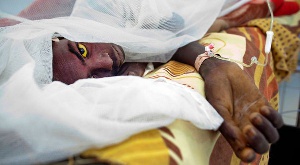Health News of Sunday, 19 June 2016
Source: WHO
Yellow fever vaccine dose ‘could be cut’
UN health experts have recommended cutting the standard dose of yellow fever vaccine by 80% in emergencies, amid a global vaccine shortage.
A smaller dose would provide immunity for at least 12 months, they said. Emergency stocks have been depleted by a mass immunisation programme in Angola, where the disease has killed more than 300 people since December.
A surge of cases in the Democratic Republic of Congo has raised fears of a crisis situation.
The current outbreak of the disease has seen 18 million vaccine doses distributed in Angola, DR Congo and Uganda.
The global stockpile of the vaccine has already been depleted twice since February.
In a statement, the World Health Organization (WHO) cautioned that so-called “fractional dosing” would only be used as a short-term measure in emergency situations where a shortage exists.
A regular dose of the vaccine provides immunity for life. The WHO said it remained unclear whether fractional doses would work for young children.
It said that current vaccine stocks were adequate but an outbreak in DR Congo’s populous capital, Kinshasa, meant the strategy was being seriously considered “to prevent transmission through large-scale vaccination campaigns”.
DR Congo has reported 1,044 suspected cases of yellow fever since March, including 71 deaths, according to the WHO.
Of 61 confirmed cases, 53 were linked to travel to Angola. Angola has reported 3,137 suspected cases since December, with 345 deaths reported.
Studies have shown that even vaccine doses of one 10th the regular amount can produce an immune response in healthy adults, Jacqueline Weyer of South Africa’s National Institute for Communicable Diseases told the BBC.
“The fear is that yellow fever outbreaks may occur in other locations, or continue to spread, with the consequent need for more vaccine, which cannot be produced in good time,” she said.
What is yellow fever?
Caused by a virus that is transmitted to humans by mosquitoes.
Difficult to diagnose and often confused with other diseases or fevers.
Presence of yellow fever antibodies can be detected by blood tests.
Most people recover after the first phase of infection that usually involves fever, muscle and back pain, headache, shivers, loss of appetite, and nausea or vomiting.
About 15% of people face a second, more serious phase involving high fever, jaundice, bleeding and deteriorating kidney function.
Half of those who enter the ‘toxic’ phase usually die within 10 to 14 days. The rest recover.











